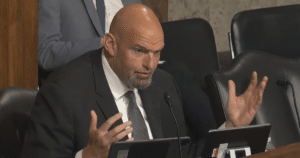President-Elect Trump Discusses Key Policies with Senate Republicans
President-elect Donald Trump arrived at the Capitol in Washington, D.C., on Wednesday to engage with Senate Republicans in discussions essential for his policy agenda.
The meeting focused on a budget reconciliation bill that aims to integrate key policy objectives, allowing the use of procedural tools to ensure passage.
Trump was received at approximately 5:30 p.m., accompanied by his wife, Melania. His visit comes as he prepares to assume office again later this month. Besides policy discussions, Trump was also in the capital to attend the funeral services for former President Jimmy Carter.
Republican Strategies on Budget and Border
The central purpose of Trump’s visit was to meet with Senate Republicans, who currently maintain control in the Senate. Hosting the meeting was Sen. Shelley Moore Capito, serving as the chairwoman of the Senate Republican Policy Committee. Scheduled to convene in the Mansfield room of the Capitol, the gathering began at 6 p.m.
The Trump administration's immediate focus is a budget reconciliation bill. This process effectively allows legislation to bypass the Senate's usual legislative filibuster, requiring only a simple majority for passage. The reconciliation bill is pivotal in consolidating policy agendas into a single comprehensive package.
Trump’s Vision for Future Policies
Trump has expressed clear preferences for a one-bill strategy, diverging from Senate Majority Leader John Thune’s initial proposal for a two-bill approach. This choice underscores Trump's intent to streamline legislative processes and effectively unify efforts behind a consolidated legislative effort.
In a statement on Truth Social, Trump emphasized the bill's role in bolstering the nation's status. He highlighted priorities like securing the border, enhancing energy policies, and renewing the Trump Tax Cuts. Trump also reiterated his desire for Republicans to unite, emphasizing a swift approval process.
Reconciliation Bill’s Path Forward
Sen. Thom Tillis and Sen. Bill Cassidy were among those confirmed to attend the meeting, although the precise count of attendees remains unclear. Participants of this meeting are integral to the development and support needed for the reconciliation bill.
Cassidy remarked on the importance of collaboration, saying it is vital to work with Trump to propel a conservative agenda. This reflects a shared commitment among Republicans to forward policies aligned with their political philosophy.
Balancing Fiscal and Policy Priorities
Trump has outlined a vision that includes making enhancements to the existing tax cuts, which he characterizes as historic. Notably, he aims to eliminate taxes on tips, suggesting that revenue can be recouped through tariffs and other measures targeting countries perceived to have disadvantaged U.S. interests historically.
On the radio, Trump mentioned to Hugh Hewitt that all options remain on the table, including reverting to the two-bill strategy, should it seem more feasible. This shows a level of strategic flexibility as the administration seeks consensus.
Evaluating Political and Legislative Impact
The importance of the planned reconciliation bill cannot be understated. For Republicans, it's a chance to efficiently enact major policy changes without facing potential obstructions typically encountered in the legislative process. The bill is anticipated to embody critical elements of the Republican agenda.
As all Republican conference members were extended invitations to join the discussion, the expectation is that consensus can be built. However, the path forward will inevitably involve navigating internal party dynamics and ensuring legislative precision.
Presidential Goals and Republican Unity
Strategically, Trump seeks to position the proposed legislation as central to boosting American prospects. His call for Republicans to unite suggests the significance he places on party cohesion in achieving shared goals.
The broader implication is a renewed focus on measures that align with his priorities, including the intensification of energy policies and revisiting fiscal policies. These are crafted to secure what Trump has often referred to as a "Pro-American" agenda.
Reflections on the Emerging Administration
This meeting marks an early indicator of how Trump plans to continue influencing legislative priorities and engage with party leaders as he steps into the presidency next. It also raises anticipatory questions about the effectiveness of his strategies once again assuming the helm.
The gathering represents a calculated move, signaling Trump’s intention to ensure that vital components of his administration's policy goals are set in motion efficiently. It signifies the interplay between established legislative processes and innovative approaches in governance.
Outlook on Upcoming Legislative Actions
Trump's presence in Washington underscores the tactical decisions being made to solidify legislative grounds in the early stages of his impending presidency. Balancing strategic legislative agendas with real-world policy implementations will be a dynamic process requiring adept negotiations.
In conclusion, Trump’s involvement in coordinating the nuanced aspects of the budget reconciliation bill reflects both his leadership style and his commitment to deliver tangible outcomes for his administration's primary policy aims.




